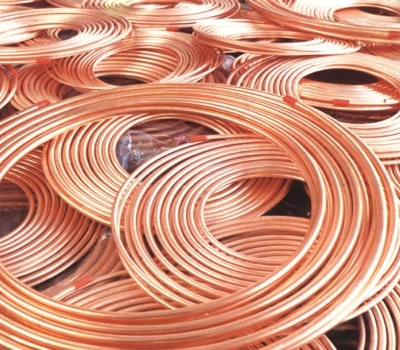1-800-865-9137
Reversing Copper Oxidation Made Easy

Removing oxidation from copper could be as easy as shining a bright light on the metal, engineers at the University of Michigan have discovered in a study funded by the Department of Energy and the National Science Foundation. This could drastically simplify the production process for propylene oxide, a catalyst used in the creation of a number of plastics, toiletries and household products like antifreeze, paint, and foam.
Currently, the U.S. produces more than 2.4 million metric tons of propylene oxide each year at a value around $4.9 billion. However, the current production process for propylene oxide requires a complex chain of reactions that generate a number of unwanted chemicals-- for example, the process that provides roughly half the propylene oxide in the US also produces around twice as many tons of salt.
A catalyst that can form propylene oxide in a direct reaction, avoiding the waste, has been called a "holy grail" of catalysis, which is why this discovery is such a big deal. Metallic copper previously showed promise, but it had -- until now -- been written off, since copper oxide tends to break propylene down into carbon dioxide or attach the oxygen to only one carbon atom, resulting in the herbicide acrolein.
However, new results show that if copper is cleverly structured, light can reverse its oxidation and create propylene oxide in the process. To demonstrate this, the University of Michigan research team created copper nanoparticles one-hundredth of the thickness of a strand of spider silk, then peppered the strand with tiny particles of silica. When the engineers floated a gas of propylene and oxygen over the resulting dust and exposed it to an intense, white light, the copper stayed in the metallic state and turned 50 percent of the propylene into propylene oxide.
A new kind of reactor that can illuminate the catalyst will be needed to bring this potentially cheap and environmentally friendly way of making propylene oxide to industry, which will make it easier than ever to create plastics, antifreeze, insulation foam, and more. The university is pursuing patent protection for the intellectual property, and is seeking commercialization partners to help bring the technology to market. We hope to see it soon!
Call us today! 1-800-865-9137



